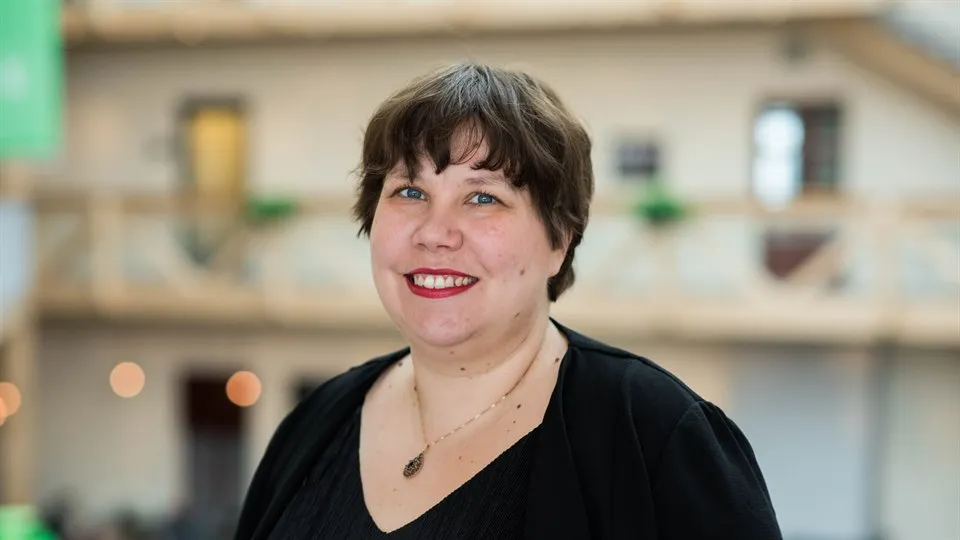The EU elections increase interest in Sofie's research
On 9 June, it is time for EU elections and for some of Mid Sweden University's researchers, this means some extra work. Political scientist Sofie Blombäck has done a lot of research on EU elections and is now highly sought after by the media – and she emphasizes how important the election actually is.
"Elections are always important! A representative democracy only works if enough people actually vote, otherwise the elected will not reflect what the whole people think. EU cooperation also affects most social issues we can think of, and the European Parliament elections are the way we have a direct influence. I think we should talk more about EU issues in the parliamentary elections as well, since the Swedish government is involved in making all decisions at EU level," she says.
Based on your research and expertise – what can the election results be expected to look like?
"As always, it is difficult to predict EU elections, but at the European level it seems clear that Parliament is swinging to the right. One of the issues that could be affected by such a development is the issue that Swedish voters usually say is most important in the EU context: the climate issue. The EU has adopted climate goals during the current parliamentary term, but several parties on the right are questioning them."
Sofie believes that the war in Ukraine may affect voter turnout, at least in Sweden. After the full-scale invasion in 2022, Swedes' support for EU membership increased to its highest levels ever, which she and her political scientist colleague Thomas Karv have previously written about. It has been shown that those who have a positive attitude towards the EU are more likely to vote and those who feel that the EU elections feel complicated, she says:
"Sometimes we make too many demands on ourselves when it comes to EU elections and feel that we have to understand all the twists and turns in the rather complicated system. Voting for a party with which you usually agree is probably an okay strategy, since the votes in the European Parliament are usually decided according to party lines. If you want to dig deeper, there are lots of compasses to use. Here, however, it is important to exercise some source criticism about who is behind the compass, so that it is a serious actor without its own agenda! If you are interested in the candidates, there are countless interviews and debates, and there are also election manifestos to take part in."
You appear a lot in the media to comment on the election - how would you characterize the recent past?
"This year's election campaign has been short but intense, and the closer the election gets, the more demand there is for researcher comments on the current political events. This year it has been a bit special, as the revelation about SD's troll factories appeared in the middle of the coverage of the election. It has even generated some international interest in the Swedish election campaign, which is not common in EU elections."
How will we be able to take part in your post-election analyses?
"On election day, I will be on P1 in the early afternoon, and have promised a couple of newspapers that they will be able to call me when the results are in. The Monday after the election, I will record a podcast at the Swedish Institute of International Affairs where we will talk about the results, and then Thomas Karv and I will arrange a seminar about the election during Almedalen Week. "
Here you can read Sofie Blombäck's and Thomas Karv's article.
Contact

